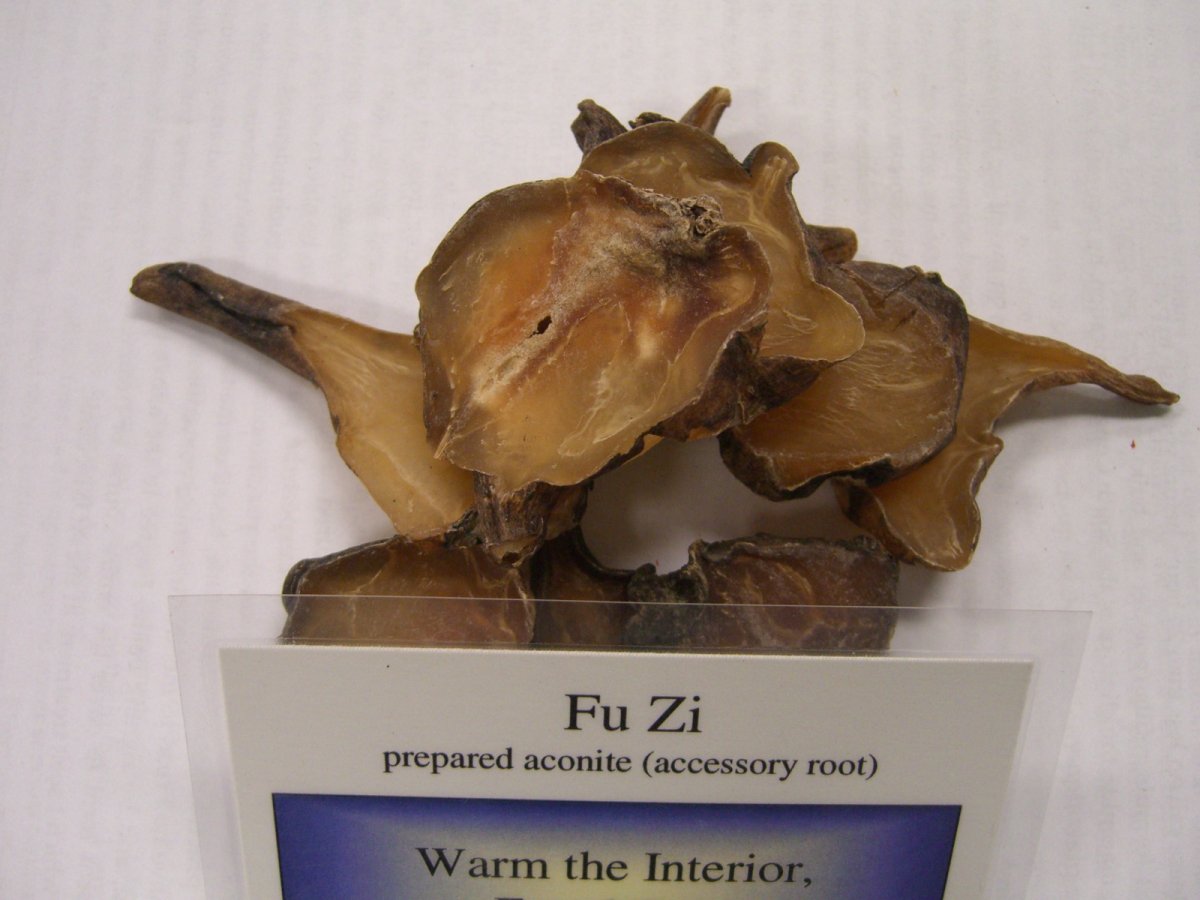Fu Zi

  | Fu Zi in TCM:Explore the properties of Fu Zi according to Chinese
Nutrition and Traditional Chinese Medicine (TCM):
Factoids:
English Name: aconite, prepared daughter root of common monk's hood
Pharmacuetical Name: Radix Aconiti Lateralis Praeparata
Properties: sweet, bitter, neutral
Temperature: neutral
Channels: SP, HT, KD
Flavors: sweet, bitter
Tonifies: yang
Special Properties:
disperses cold, clears damp, disperses wind, alleviates bi syndrome
Actions / Indications:
- Rescues devastated yang (extremely weak yang qi with
abundant cold yin, shaoyin syndrome: diarrhea with undigested food,
chills, cold extremities, cold sweating, faint pulse, often occurs after
severe vomiting, diarrhea, or sweating; fu zi assists heart yang to
unblock the vessels, tonifies KD yang to augment fire and prevent loss
of yuan qi)
- Warms fire; assists the yang (cold womb, impotence,
abdominal cold pain, diarrhea, edema, yin jaundice, associated with
deficiency of SP or KI yang)
- Disperse cold; warms channels; relieves pain (wind-damp-cold
painful obstruction especially when cold is predominant; also for headache,
chest bi, abdominal pain due to cold)
Special Notes:
- Incompatible with bei mu, gua lou, tian hua fen, ban xia, bai ji,
and bai lian
- Antagonistic with xi jiao
- Wu tou refers to all of these: fu zi, chuan wu, and cao wu
- Chuan wu is the main root of Aconite, whereas fu zi is the accessory
root of Aconite
- Cao wu is the wild form.
- "without gan jiang, fu zi is not hot" (refers
to mutual accentuation). "Gan Jiang stays and Fu Zi walks".
- All are very hot and toxic. Should cook long time to reduce toxicity.
- Gan Jiang warms SP and LU while Fu
Zi warms HT yang, SP yang, and KD yang.
Contraindications:
- (cc: pregnancy)
- (cc: yin deficiency with false cold, true heat)
Disclaimer: In accordance with our terms of service, by using this web site you agree that none of the information found on this web site constitutes medical advice. You should always consult your doctor before trying any particular food or herbal remedy to treat disease.
Folk remedies presented on this site are designed to address specifc TCM diagnoses, and are not one-size-fits-all. If you would like to learn more about Traditional Chinese Medicine (TCM) and how it relates to Chinese Nutrition, you can book in a free call with a licensed professional. There is no obligation to purchase.
[CLICK HERE for your free INITIAL CONSULTATION] |

